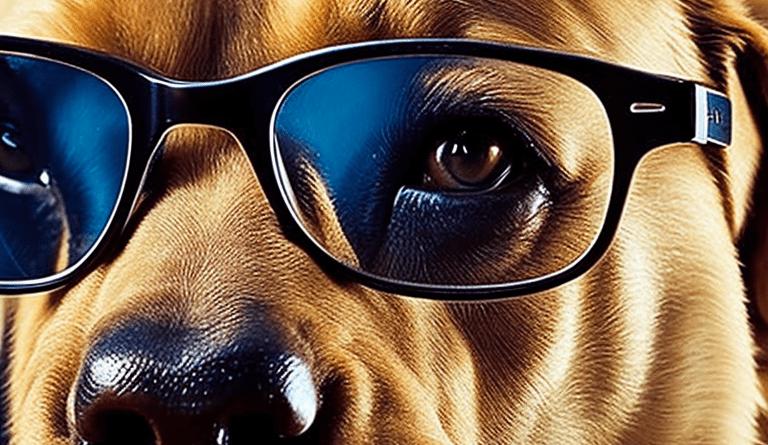The Impact of Aging on Dogs’ Health and Behavior
As dogs enter their senior years, it’s important to recognize that they will begin to undergo physical and mental changes that require a different level of care. Just like humans, aging in dogs is a natural process that may result in a variety of health and behavior changes. In this article, we’ll explore what happens when dogs age, the physical and behavioral changes that may occur, and some ways to care for aging dogs.
Aging in Dogs: What Happens?
Aging in dogs is a multifactorial process that involves physical and physiological changes. Generally, dogs are considered seniors when they reach the age of seven, although this may vary depending on the breed and size of the dog. As dogs age, their metabolism and energy levels decrease, which may lead to changes in their behavior.
Physical Health Changes in Aging Dogs
Joint Problems
One of the most common physical changes that occur in aging dogs is joint problems. This may include stiffness, difficulty walking, and arthritis. As dogs age, the cartilage in their joints breaks down, causing pain and inflammation.
Dental Issues
Dental issues are another common problem in aging dogs. This may include gum disease, tooth decay, and tooth loss. Failure to address dental problems in aging dogs can result in more severe health issues, such as heart disease.
Vision and Hearing Loss
Just like humans, dogs may experience vision and hearing loss as they age. This may result in your dog becoming less responsive to your commands or having difficulty navigating their environment.
Heart Disease
Older dogs are more prone to developing heart disease than younger dogs. This may include congestive heart failure, arrhythmia, or heartworm disease. Regular checkups and monitoring are essential to detect and treat heart disease early.
Kidney and Liver Problems
As dogs age, their kidneys and liver may begin to function less efficiently, leading to health issues such as kidney disease or liver disease. Proper nutrition and regular checkups can help detect and treat these issues early.
Behavioral Changes in Aging Dogs
Increased Anxiety
As dogs age, they may become more anxious, especially when separated from their owners or exposed to unfamiliar stimuli. Separation anxiety and general anxiety may cause dogs to become more vocal or destructive.
Expectations for Exercise and Playtime
While dogs may still enjoy playtime and exercise as they age, they may not have the same level of energy or endurance as they did when they were younger. It’s important to adjust exercise routines to suit your aging dog’s needs.
Changes in Sleeping Patterns
Aging dogs may also experience changes in their sleeping patterns. They may sleep for longer periods or become restless during the night. This may be due to discomfort or pain caused by physical health problems.
Cognitive Dysfunction
Cognitive dysfunction, or doggy dementia, is a common condition in older dogs. This may result in confusion, disorientation, or changes in behavior.
Fear and Aggression
Some aging dogs may experience increased fear and aggression. This may be due to cognitive changes or discomfort caused by physical health problems.
How to Care for Aging Dogs
Nutrition
Proper nutrition is essential to care for aging dogs. It’s important to provide a well-balanced diet that includes high-quality, easily digestible proteins, moderate fat, and essential nutrients.
Exercise
Exercise is still essential for aging dogs, but it’s important to adjust the routine to suit their needs. Short, gentle walks and mental stimulation activities can help keep older dogs healthy and engaged.
Regular Checkups
Regular vet checkups are essential to detect and treat health issues early. As dogs age, they may require more frequent checkups and monitoring.
Grooming
Grooming is still essential for aging dogs. This may include regular baths, brushing, and haircuts. Proper grooming can help prevent skin issues and keep dogs comfortable.
Aging is a natural process that affects all dogs differently. By understanding the physical and behavioral changes that occur in aging dogs, pet owners can adjust their care routines to suit their dog’s needs. With proper care and attention, aging dogs can continue to live happy, healthy lives for many years.

Frequently Asked Questions about Aging Dogs’ Health and Behavior
What health issues should I expect my aging dog to face?
As dogs get older, they become susceptible to a variety of health issues. Some common health problems in older dogs include arthritis, cancer, dental disease, decreased vision/hearing, and cognitive dysfunction. Regular check-ups with your vet can help identify and treat these issues early on.
What behavior changes should I expect as my dog ages?
As dogs age, they may become less active and require more rest. They may also exhibit changes in temperament, such as becoming more irritable or anxious. Additionally, cognitive decline can cause confusion, disorientation, and changes in personality. If you notice any drastic behavior changes in your aging dog, consult with your vet to rule out any underlying health issues.






